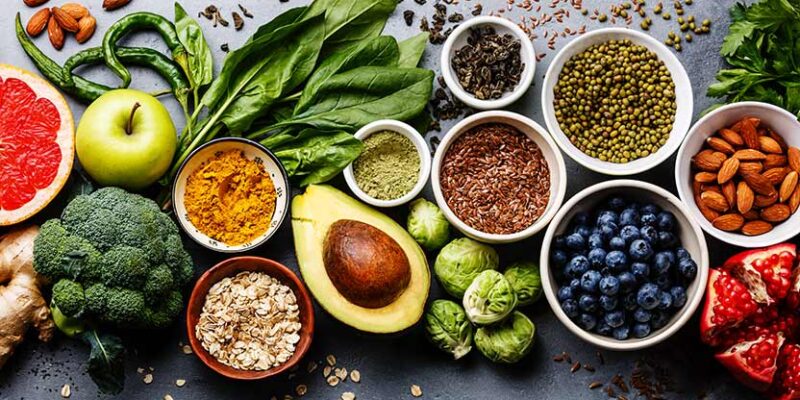
In the fast-paced modern world, where stress and processed foods often dominate our daily lives, inflammation has become a common concern linked to various chronic diseases. The good news is that adopting certain dietary and lifestyle practices can significantly contribute to reducing inflammation in the body. In this article, we’ll explore practical tips that empower you to make informed choices for a more anti-inflammatory lifestyle.
- Prioritize Whole Foods: The foundation of an anti-inflammatory diet lies in whole, nutrient-dense foods. These include fruits, vegetables, whole grains, lean proteins, and healthy fats. Whole foods provide essential vitamins, minerals, and antioxidants that combat inflammation and promote overall health.
- Embrace Omega-3 Fatty Acids: Omega-3 fatty acids, found in fatty fish like salmon, walnuts, and flaxseeds, are renowned for their anti-inflammatory properties. These healthy fats help balance the body’s omega-6 to omega-3 ratio, reducing inflammation at the cellular level.
- Limit Processed and Sugary Foods: Processed foods and excessive sugar consumption contribute to chronic inflammation. These items often contain trans fats and high levels of refined sugars, triggering an inflammatory response in the body. Opt for whole, unprocessed foods to mitigate these inflammatory effects.
- Incorporate Turmeric and Ginger: Turmeric and ginger, both renowned for their anti-inflammatory and antioxidant properties, can be powerful additions to your diet. Incorporate them into your meals or enjoy them in teas and smoothies. Curcumin, the active compound in turmeric, specifically targets inflammation pathways.
- Stay Hydrated with Green Tea: Green tea contains antioxidants called catechins that have anti-inflammatory effects. Staying hydrated with green tea not only supports overall health but also contributes to reducing inflammation. Aim for at least two cups a day to reap its benefits.
- Manage Stress through Mindful Practices: Chronic stress can trigger inflammation in the body. Incorporate stress-reducing practices such as meditation, deep breathing exercises, or yoga into your routine. These activities not only promote relaxation but also have been shown to lower markers of inflammation.
- Regular Physical Activity: Exercise is a natural anti-inflammatory, as it helps regulate the immune system and reduces inflammation throughout the body. Aim for a combination of cardiovascular, strength training, and flexibility exercises to enjoy the full spectrum of anti-inflammatory benefits.
- Adequate Sleep is Vital: Quality sleep is essential for overall health, including inflammation regulation. Aim for 7-9 hours of sleep per night, as inadequate sleep has been linked to increased inflammation and a higher risk of chronic diseases.
- Consider Anti-Inflammatory Herbs: Certain herbs, such as rosemary, oregano, and basil, have potent anti-inflammatory properties. Incorporate these herbs into your cooking to enhance flavor while reaping their health benefits.
- Mindful Eating Habits: Pay attention to portion sizes and listen to your body’s hunger and fullness cues. Mindful eating promotes a healthier relationship with food, reducing the likelihood of overeating and the associated inflammation that can come with it.
By integrating these tips into your daily life, you can embark on a journey towards reduced inflammation and enhanced overall well-being. Remember, small, consistent changes in both diet and lifestyle can have a profound impact on inflammation levels, setting the stage for a healthier and more vibrant you.
What is your reaction?
Excited
0
Happy
0
In Love
0
Not Sure
0
Silly
0











